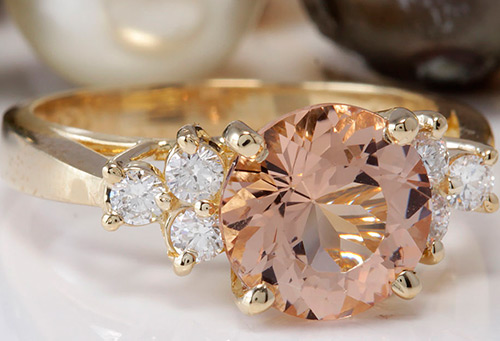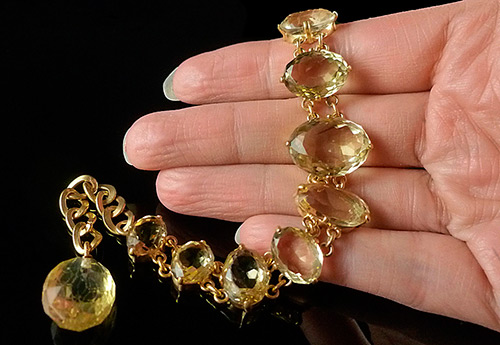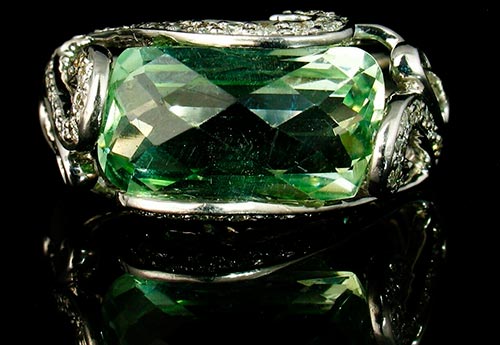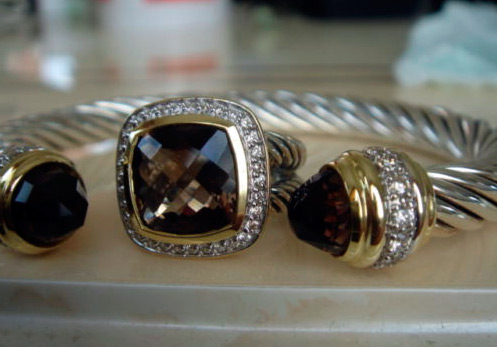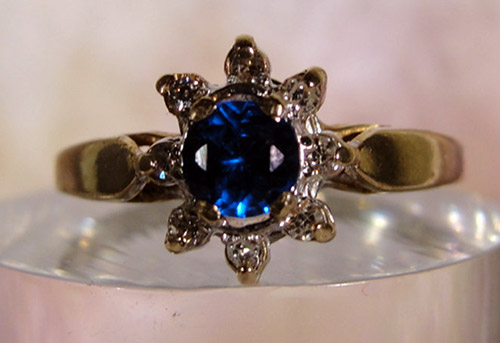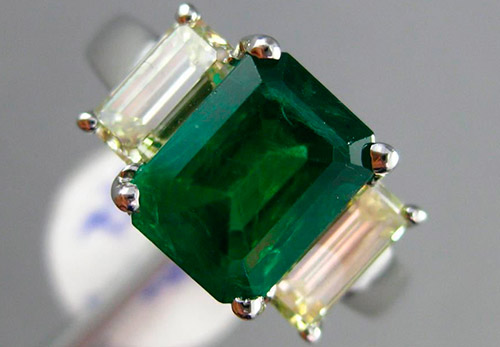Kunzite stone - properties and decorations
Kunzite is a precious variety of spodumene. The stone is named after the American gemologist J. Kunz. Externally, the stone looks like lilac amethysts or rose quartz. When American prospectors Sicklers found this crystal, they turned their attention to its unusual transparency, glassy luster and rich shading along the edges of pink.
The crystal was sent for analysis to the gemologist J. Kunz, who determined that before him was a mineral, unknown hitherto to science, a silicate rich in lithium and aluminum - LiAl [Si2O6]. This was in 1902. Since then, the stone has been named - kunzite, although Kunz was not at all involved in the discovery of the new crystal.
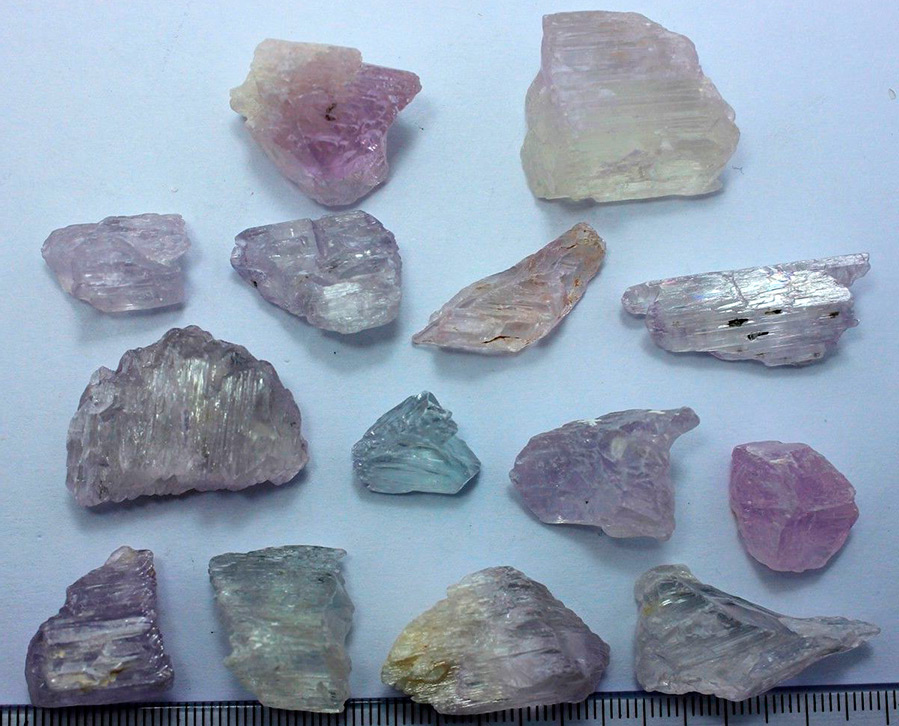
The stone is fragile, its crystal structure is fibrous. Hardness - 7, density - 3.2. And one more feature of the stone that always arouses admiration - pleochroism - from different angles of view the crystal changes its color, it becomes that lilac, then pale pink and even colorless. The crystal also possesses a strong luminescence in orange tones.
A distinctive feature of the gem is its pale pink color, which is responsible for the content of impurities in the stone - manganese. But at the same time, it is manganese that is responsible for another feature of kunzite - the ability to fade when heated and under the influence of sunlight.
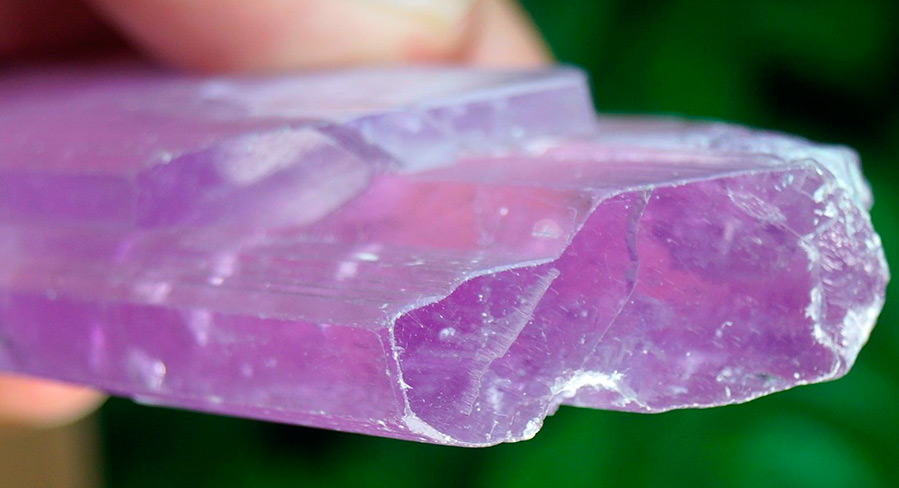
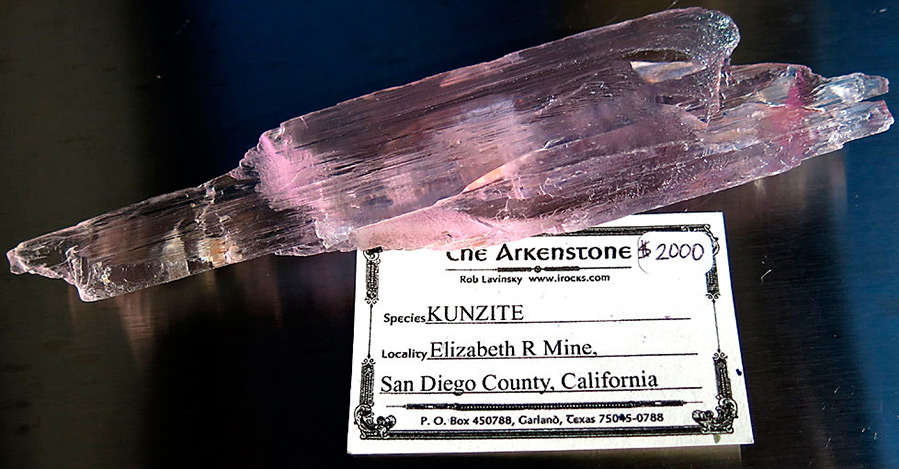
Deposits of kunzite stone
Kunzite deposits have been discovered in Brazil, USA, Afghanistan, Africa. The most beautiful and largest stones are mined in Brazilian deposits. Most of the kunzites found in mineralogical museums are mined in Brazil. Pale pink crystals are also found in Siberia. However, many finds of kunzite are unattractive, and not always transparent, and therefore have no demand in the jewelry market.
Californian kunzites cannot argue with their beauty with Brazilian ones. Valuable finds are found in Afghanistan and Africa.
Kunzite is sometimes found in huge monoliths, sometimes several meters in size and weighing tens of tons. But jewelers are not interested in such giant kunzites, since they do not have the transparency that is inherent in small finds, and even when cutting, there are great difficulties. Large copies of 800 and 336 carats are kept at the Smithsonian Institution in Washington.
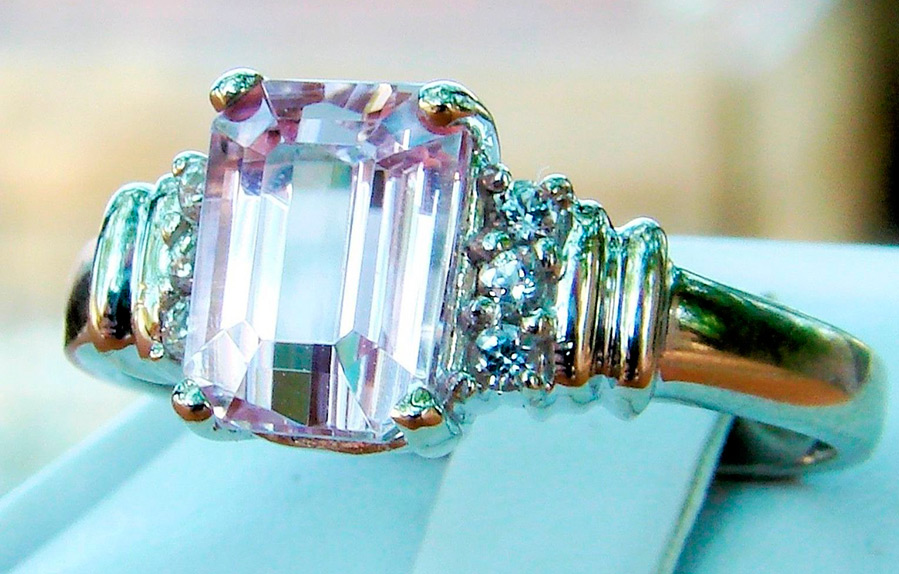
Kunzite in jewelry
Today, kunzite is still an inexpensive gem. Recently, however, it has begun to gain popularity. Its beauty is best shown in large inserts. Kunzite crystals adorn rings, earrings, brooches, pendants.
Smoky pink brilliant-cut stone is preferred in Western Europe, while oriental gem fans appreciate the brighter varieties of kunzite. The cost of crystals varies in a wide range - from five to fifty or more dollars per carat.
There is a temptation among scammers to sell inexpensive amethysts or rose quartz, as well as synthetic counterparts for kunzite. And sometimes it's even easier - instead of kunzite, they manage to sell tinted glass.
Kunzite requires careful handling. When heated, the stone irreversibly loses its color, and with it its value. The persistence of kunzite differs depending on the deposit. Brazilian beautiful kunzites are the most unstable.
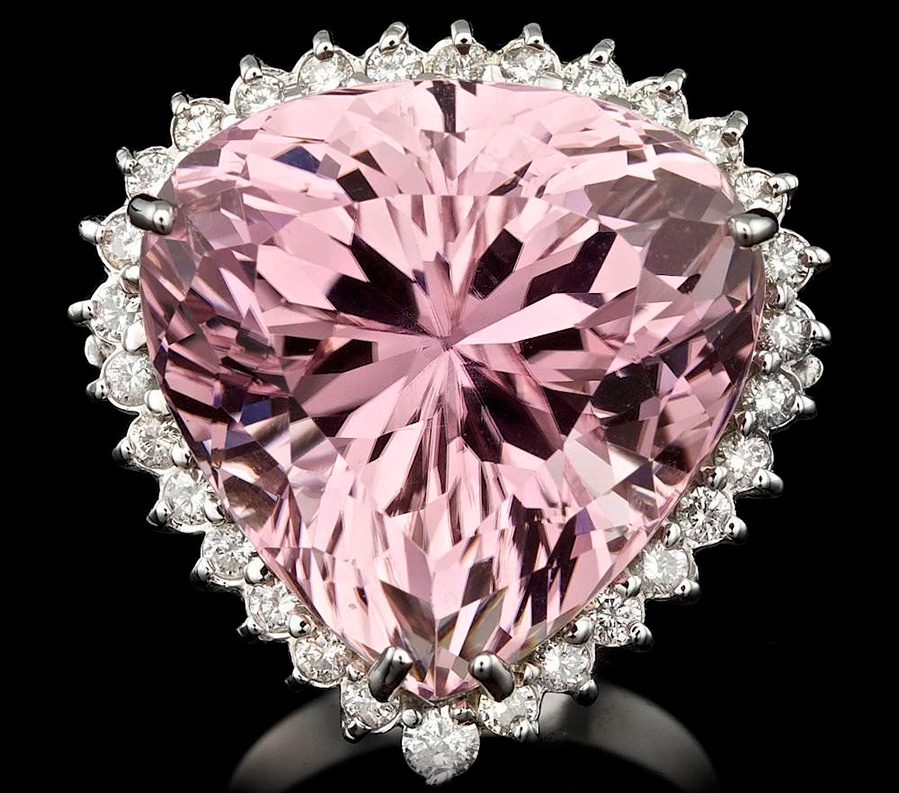
[media = httpss: //www.youtube.com/watch? v = qYiP8O-qZwg]
Healing and magical properties of kunzite stone
We can immediately say that this stone is one of the friendliest stones. He suits all signs of the zodiac, but especially loves those born under the sign of Taurus, Leo and Scorpio. Lithotherapists also assure that kunzite has a positive effect on the functioning of the cardiovascular system and soothes the nerves.
The positive effect of the crystal has been noticed in those who have psychological disorders.It is useful for such people to have daily communication with the stone (look at the stone for a few minutes), and anxiety states gradually go away, obsessive fears are forgotten, peace and harmony with the world around them is gained. The stone helps its owner find a balance between mind and heart.
In addition, kunzite stimulates mental activity, and in creative activity helps to gain inspiration. Kunzite is especially friendly to children. Therefore, you can safely acquire this beautiful and delicate stone, perhaps it will be able to protect you from the harmful effects of negative energy. There is a lot of misunderstanding in this world, even in relationships with loved ones, so many of us tend to trust even a stone, maybe a pink ray will warm your soul too.
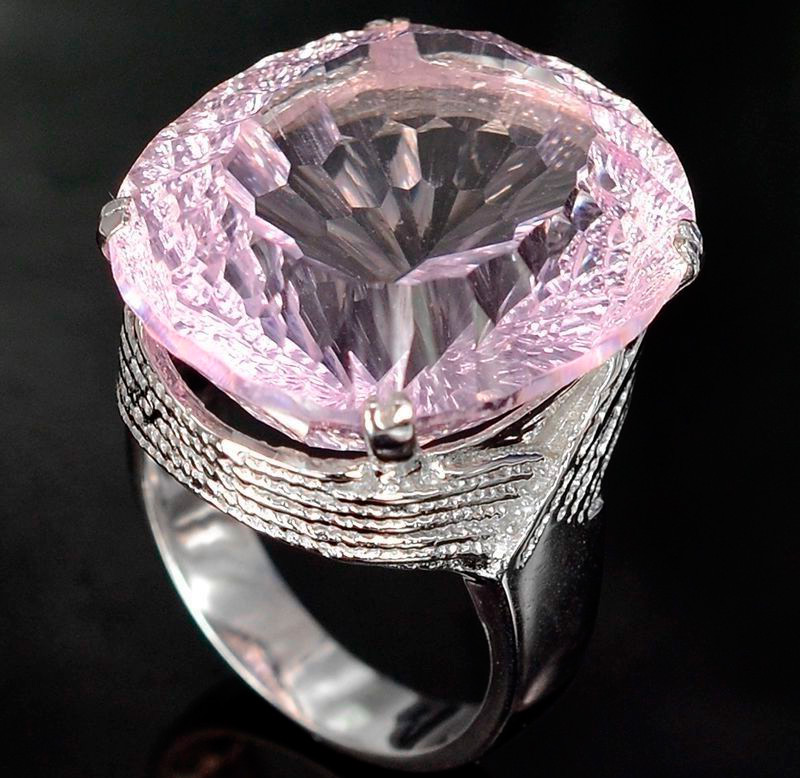
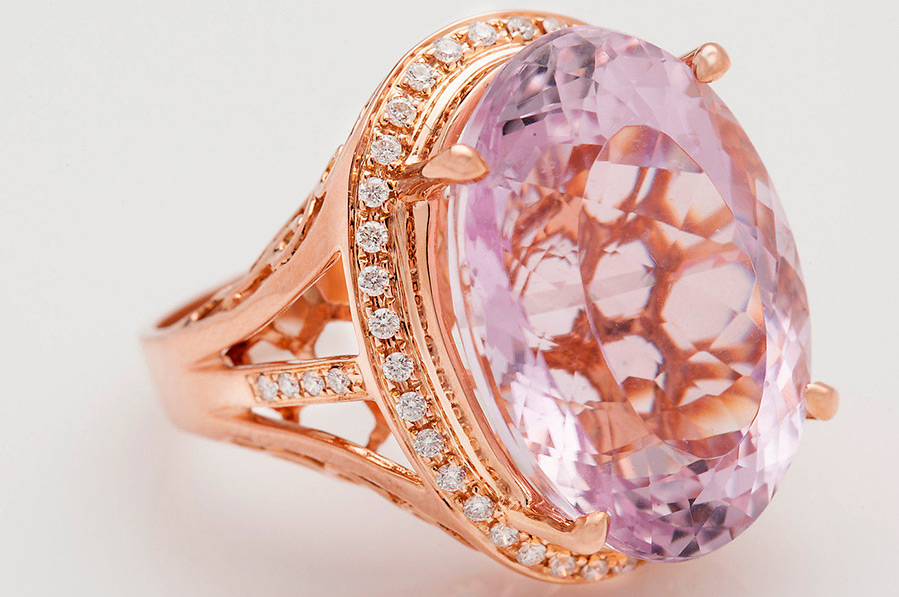
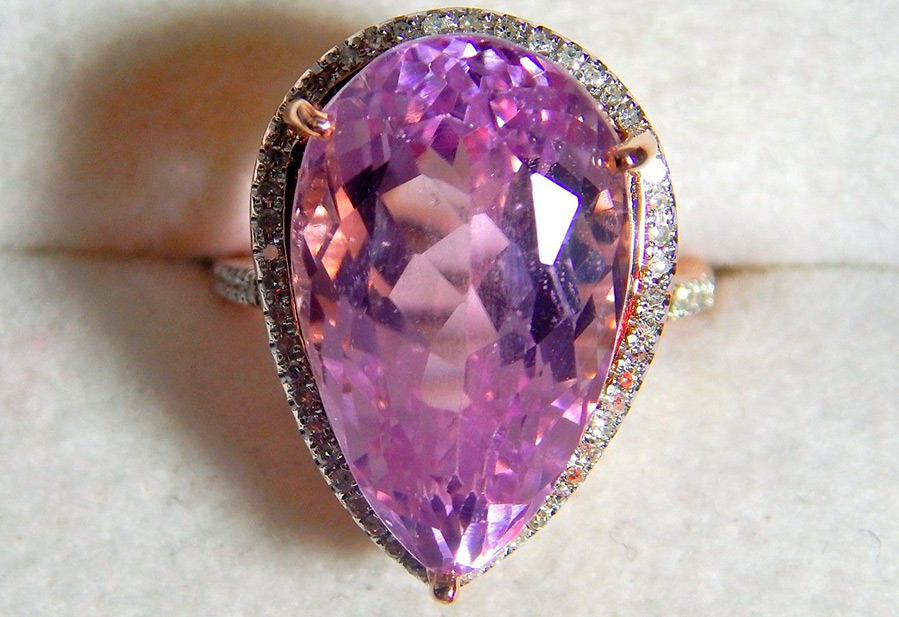
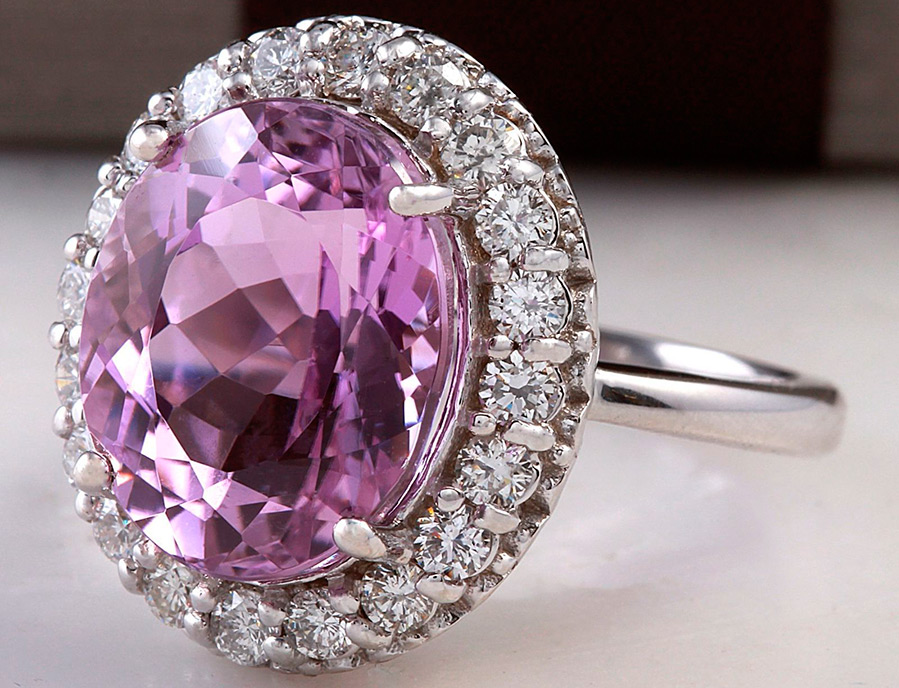
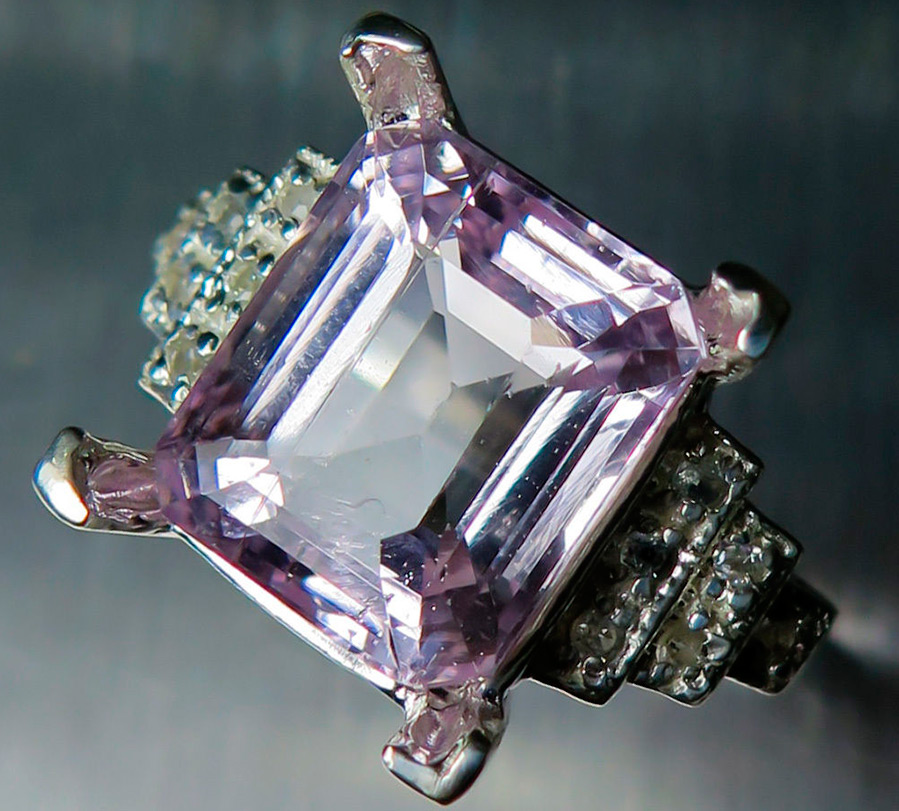
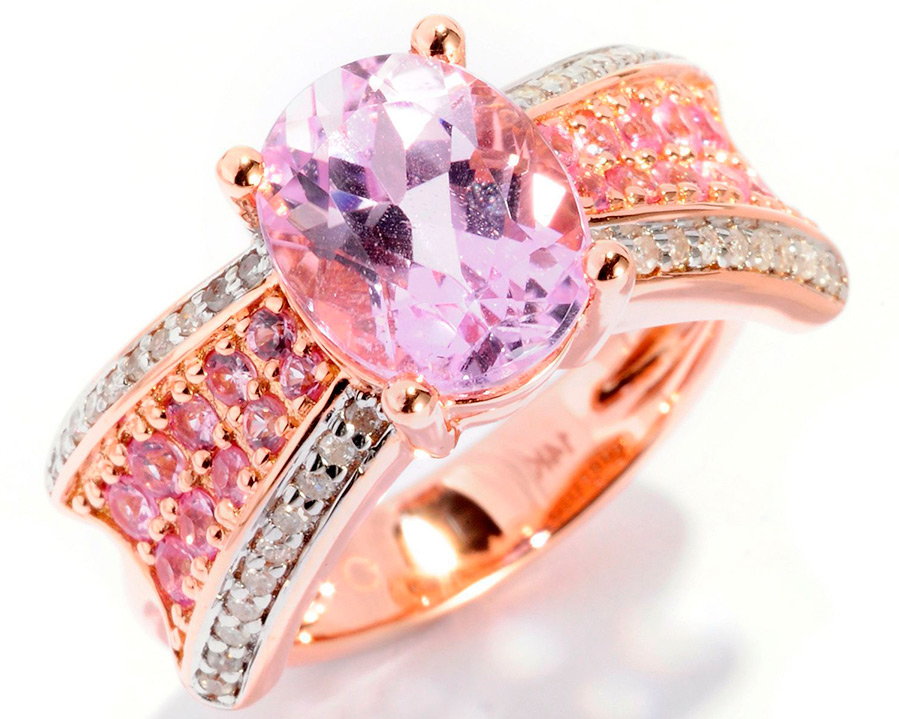
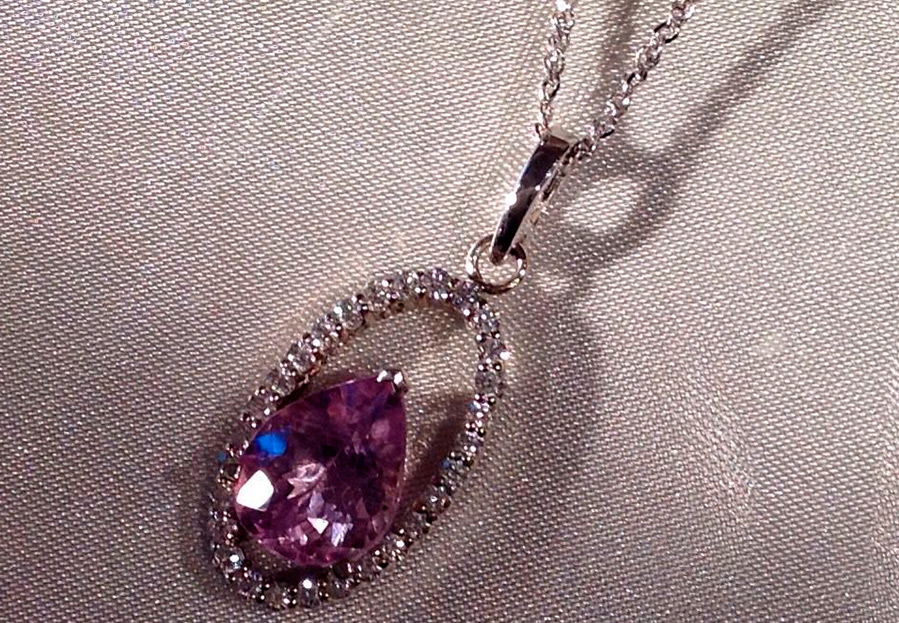
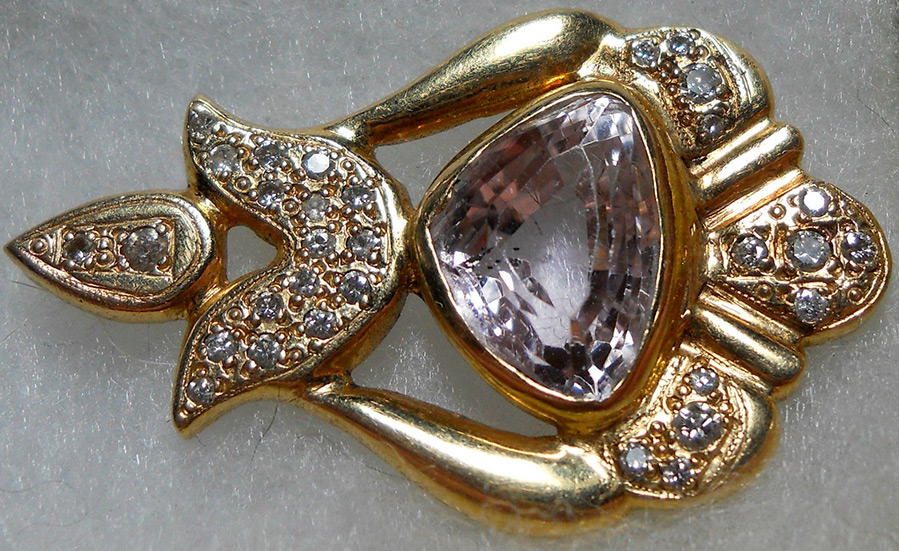
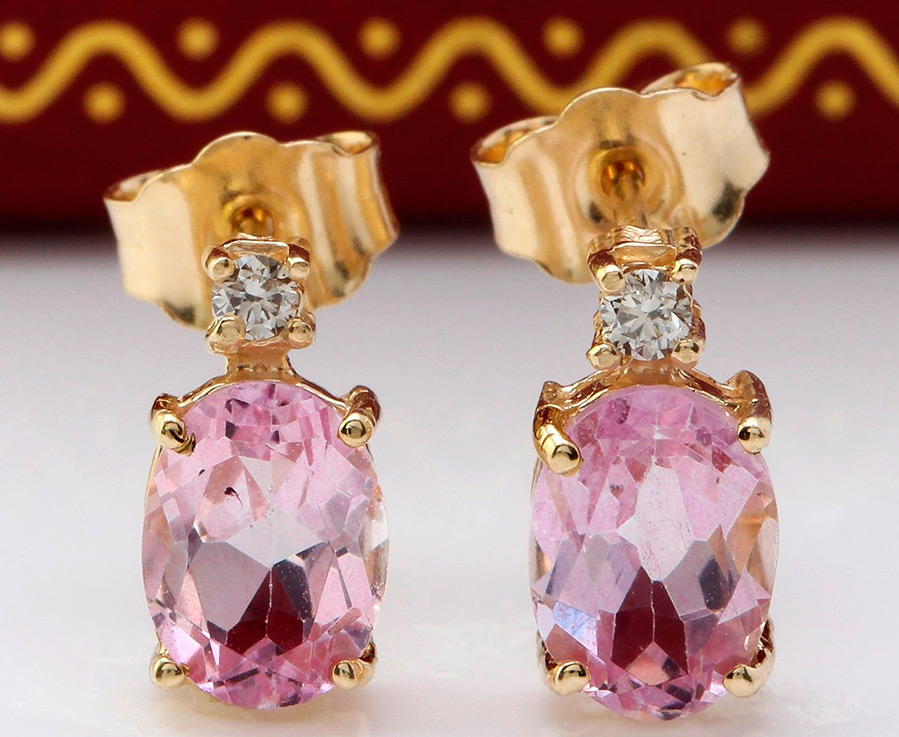
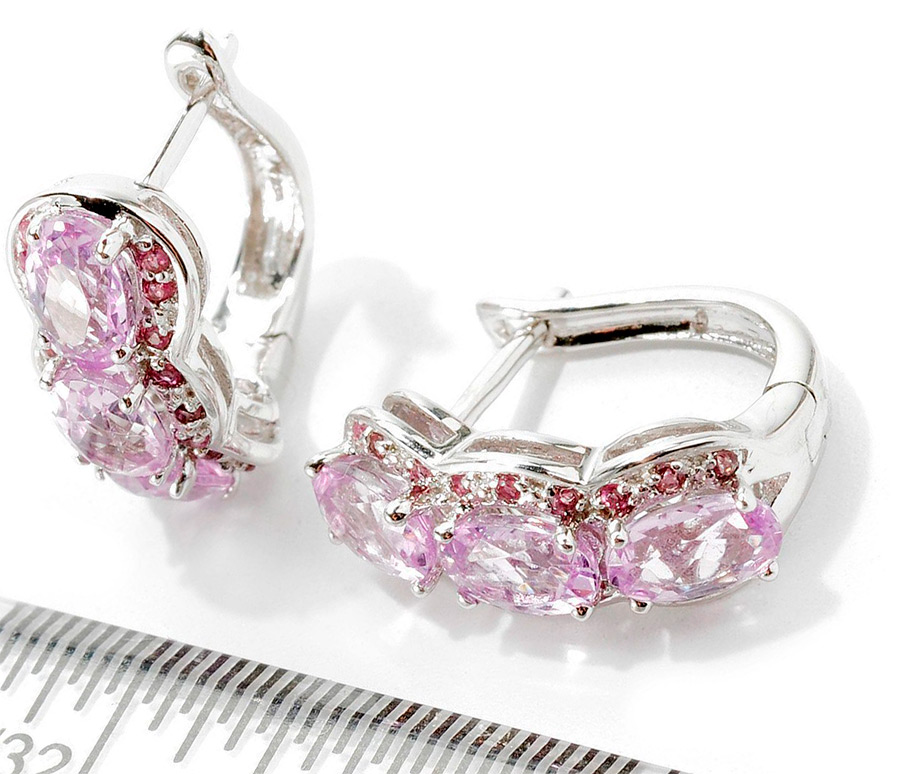
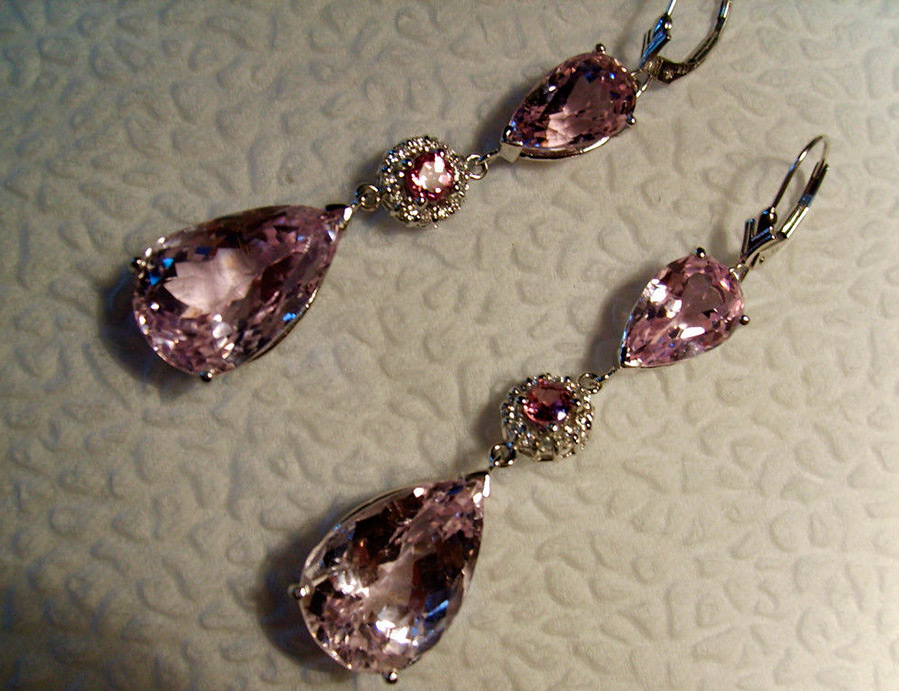
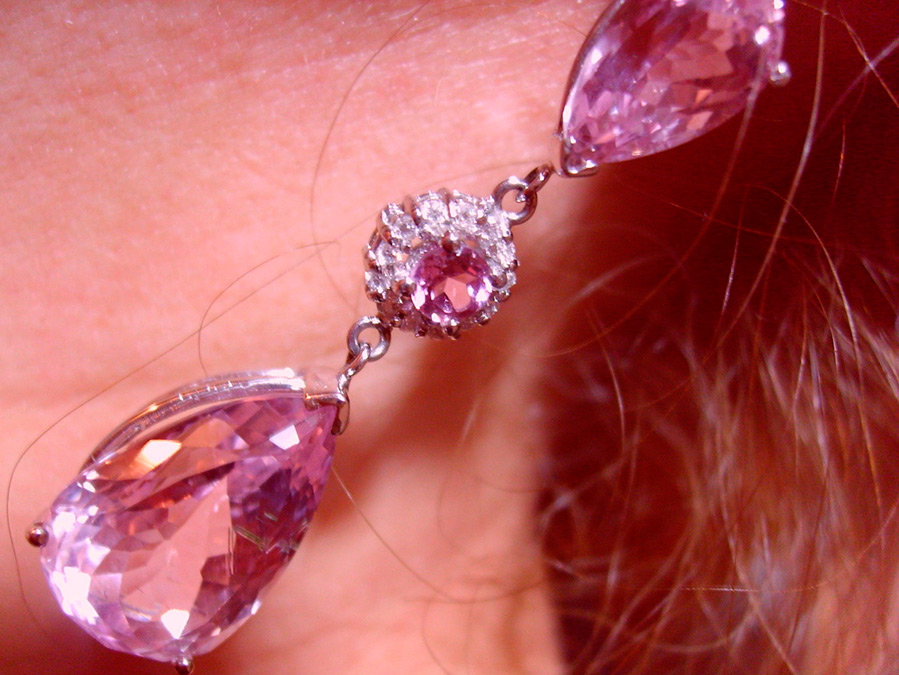
Comments and Reviews
Add a comment
Rating news
Shades of clothing that make women look younger
What shades of hair make women younger: rules and photos
Funny wedding dresses - photos and ideas
12 most expensive down jackets for the winter
How to look 25 at 40: tips from supermodels
Beautiful schoolgirls
Anti-aging haircuts and hairstyles for women
Fashionable skirts for autumn and winter
Fashionable women's trousers for the cold season
Fashionable and stylish sandals for summer 2024
Spring-summer 2024
 Fashionable dresses and tops with thin spaghetti straps
Fashionable dresses and tops with thin spaghetti straps
 Bandana tops: how to wear stylishly and beautifully
Bandana tops: how to wear stylishly and beautifully
 How to put together the perfect men's wardrobe for the summer
How to put together the perfect men's wardrobe for the summer
 Fashionable shorts for spring-summer 2024
Fashionable shorts for spring-summer 2024
 Fashionable skirts for spring-summer 2024: a guide to online shopping
Fashionable skirts for spring-summer 2024: a guide to online shopping
 The most fashionable dresses spring-summer 2024: styles and colors
The most fashionable dresses spring-summer 2024: styles and colors
 Fashionable total look 2024: ideas of images and trends
Fashionable total look 2024: ideas of images and trends
